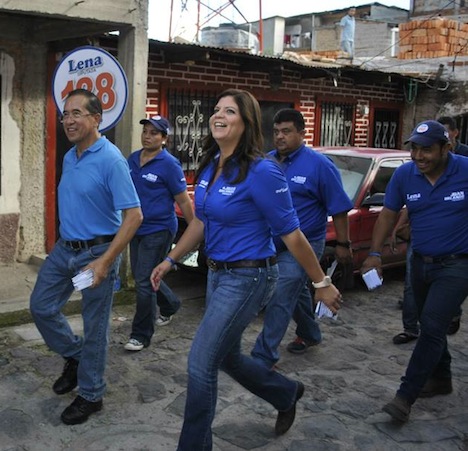We’re less than two weeks from December. That means that the Bundestag, the lower house of Germany’s parliament, has been sitting for about a month, and we’re weeks away from the self-imposed deadline that chancellor Angela Merkel placed on securing a new coalition government.![]()
In case you forgot, Merkel won a handsome victory in the September 22 federal election, when her center-right Christlich Demokratische Union Deutschlands (CDU, Christian Democratic Party) — together with the Christlich-Soziale Union in Bayern (CSU, the Christian Social Union in Bavaria) — won 311 seats in the Bundestag, just five seats short of an absolute majority. It was the biggest victory for Merkel’s Christian Democrats in nearly two decades, harkening back to the wide margins that former CDU chancellor Helmut Kohl won in 1990 and in 1994 in the afterglow of the relatively successful reunification of West and East Germany.
But while the CDU-CSU savored a sweet victory, their coalition partners between 2009 and 2013, the Freie Demokratische Partei (FDP, Free Democratic Party) failed to win any seats in the Bundestag for the first time since 1945, leaving Merkel with two options — a minority government or a coalition government with more leftist partners.
Though Merkel flirted throughout early October with Die Grünen (the Greens), a tantalizingly novel coalition that would have remade the German political spectrum, the Greens pulled out of talks on October 16. So for over a month, coalition negotiations have been exclusively among the CDU, the CSU and the center-left Sozialdemokratische Partei Deutschlands (SPD, Social Democratic Party). Earlier in November, the coalition talks were going so well that CSU leader and Bavarian minister-president Hoorst Seehofer worried that the harmony would subsume the real policy differences between the German right and the German left.
As Merkel quipped earlier this year, Christmas comes sooner than you think, and Merkel, Seehofer and the SPD’s leader, Sigmar Gabriel (pictured above), are under increasing pressure to agree on a coalition agenda — and given that the CDU-CSU’s 311 seats and the SPD’s 192 seats constitute 79.8% of the entire Bundestag, expectations are high that such a wide-ranging coalition will tackle long-term reform both in Germany and in the European Union. Moreover, any coalition deal agreed among the three parties must also win subsequent confirmation from a vote of 470,000 SPD members in December.
So what’s holding up the deal? Continue reading Merkel’s CDU-CSU, Gabriel’s SPD stumbling toward a not-so-grand coalition in Germany

